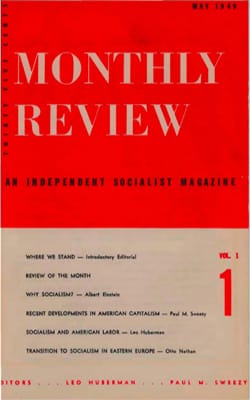Social Structure and Forms of Consciousness, Vol. I: The Social Determination of Method
$29.95
This new work by the leading Marxian philosopher of our day is a milestone in human self-understanding. It focuses on the location where action emerges from freedom and necessity, the foundation of all social science.
Today, as never before, the investigation of the close relationship between social structure — defined by Marx as “arising from the life-process of definite individuals” — and the various forms of consciousness is particularly important. We can only perceive what is possible by first identifying the historical process that constrains consciousness itself, and therefore social action.
The relationship between social structure and forms of consciousness discussed in this volume is multifaceted and profoundly dialectical. It requires the presentation of a great wealth of historical material and the assessment of the relevant philosophical literature, from Descartes through Hegel and the Liberal tradition to the present, together with their connections with political economy and political theory. István Mészáros moves beyond both abstract solutions to the surveyed methodological questions and one-sided structuralist evaluation of the important substantive issues, bringing the process of our understanding of social structure and consciousness to a level not previously attained.
Above all, in the spirit of the Marxian approach, even the most complicated problems are analyzed in relation to the major practical concerns of our time. The primary aim of this work is to outline the dialectical intelligibility of historical development toward a viable societal reproductve order. Social Structure and Forms of Consciousness is of the highest importance as both a political and philosophical work, illuminating the place from where we must act, today.
…contains both invaluable critique of particular figures, and also a framework for understanding the problems of philosophy in the capitalist age. Most figures receive very sharp treatment, but as a result mystifications and evasions are indeed stripped away. In contrast, the serious viability of revolutionary Marxist thought is revealed as an answer to the conundrums bourgeois philosophy cannot solve.
—Counterfire
The Pathfinder” of 21st Century Socialism.
—Hugo Chávez, President of Venezuela
Referring to István Mészáros, Miraflores Palace, September 10, 2001
For me, István Mészáros is one of the few people who has made essential contributions to the body of Marxist thought. Like Marx, he is not easy to read, but he is definitely worth the effort.
—Michael A. Lebowitz, author of Build It Now
No living Marxist philosopher has done more to clarify and to show the continuing relevance of Marx’s most important theories than István Mészáros. In this work, the dialectic of structure and history provides the framework with which to resolve some of the most difficult conundrums in Marx’s treatment of political economy, politics, society and consciousness. The reader emerges a full head taller from the effort with a clearer grasp of what is to be done and how (and with whom) to do it. An essential project, brilliantly carried out!”
—Bertell Ollman, department of politics, New York University; author of Dance of the Dialectic: Steps in Marx’s Method and other works
If everyone had the spirit of István Mészáros, that is, if everyone were…so mindful of the totality and the future, so fierce in opposition, so faithful to the exploited and oppressed, and so hopeful for a better world, then such a world would be in closer reach.
—Joel Kovel
István Mészáros left his native Hungary after the Soviet invasion of 1956. He is professor emeritus at the University of Sussex, where he held the chair of philosophy for fifteen years. Mészáros is author of The Structual Crisis of Capital, The Challenge and Burden of Historical Time, Beyond Capital: Toward a Theory of Transition, and Marx’s Theory of Alienation, among other books.
Publication Date: February 2010
Paperback ISBN: 9781583672044
Number of Pages: 432
Related products
-
Monthly Review Volume 2, Number 10 (February 1951) [PDF]
$10.00 Add to cart -
Monthly Review Volume 2, Number 7 (November 1950) [PDF]
$10.00 Add to cart -
Monthly Review Volume 2, Number 6 (October 1950) [PDF]
$10.00 Add to cart -
Monthly Review Volume 1, Number 9 (January 1950) [PDF]
$10.00 Add to cart -
Monthly Review Volume 1, Number 4 (August 1949) [PDF]
$10.00 Add to cart -
Monthly Review Volume 1, Number 1 (May 1949) [PDF]
$10.00 Add to cart

 [PDF].jpg)
 [PDF].jpg)
 [PDF].jpg)
 [PDF].jpg)
 [PDF].jpg)
